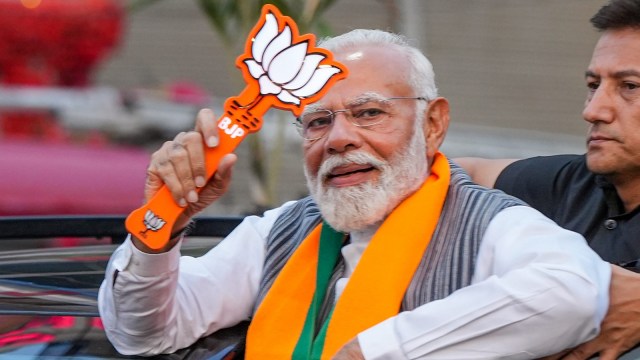
Slogans and acronyms, whether alliterating or not, can be part of the vocabulary of politics but can never be the basis of analysis or policy. Nor can ideas of national interest be divorced from national ideologies; it is simplistic to think differently. Besides, even ministers have to carefully avoid the enticing trap of viewing the past through the prism of the present. That hindsight is always 20/20 may be a cliché but it is, nevertheless, true. This is not to cover past mistakes but merely to point to the essentiality of evaluating circumstances and situations that led to policy determinations.
The absence of such scrutiny may win political brownie points but inevitably leads to the repetition of error as India’s approaches to China indicate. If the early decades of Independence were marked by an insufficient analytical understanding of Chinese motivations, ambitions and objectives, in recent years the thrust of resolving fundamental difficulties or sustaining agreements reached in the past through an inordinate reliance on personal chemistry displayed naivete. Chinese actions in 2020, hopefully, acted as a corrective.
Are states ever really ‘friends’?
The desire to be a “Bandhu” to the entire world is noble. However, are those who frame the external policies of countries really taken in by such self-proclamations? Indeed, why should there ever be a need for such claims? What do they reveal about the psyche of such claimants? The fact is that friendship is among individuals. Friendship does not seek reciprocity — if it does, it cannot be friendship. Can nations ever act altruistically?
States pursue perceived self-interest. “Bandhutva” is never the basis of their actions even when they assist another state. Indeed, it is ironical that “Bandhutva” is being asserted by the current ruling dispensation along with the claim that it is more sharply and concertedly pursuing India’s (which is constitutionally the appropriate word, as yet, to express this country’s name in the English language) national interest now than other governments did so in the past. Is this correct? Would it not be true to state that just as today the Modi government has sought to promote India’s interest, acting unilaterally or bilaterally and multilaterally, others did so too in the past? All explored regional and global opportunities within existing international constraints. It is appropriate for politicians, even those who have become so after pursuing earlier careers, to promote their party’s interests. But in doing that, should they abandon facts, experience and logic?
Rethinking our priorities
At all times, national development goals are shaped by domestic ideologies and the external environment. It is thus also today. The Narendra Modi government has done well to use the products of the digital age to move towards a formalisation of the economy. However, inequalities that began to rise with the beginning of the liberalisation period have grown enormously. They challenge the premise of constitutional values. More significantly, the need to use the opportunities created by global concerns regarding the concentration of manufacturing facilities only in a singular economy is obvious. The question, though, is if conditions have been adequately created for this purpose. The recent example of a captain of a digital industrial giant giving India a miss after planning a visit and landing in China is noteworthy.
It is also good to contemplate “leapfrogging” in the knowledge industries and a wide swathe of economic activities but these will remain dreams without the deployment of enough public and private resources. There is no indication that this is being done. Realism demands an acknowledgement that let alone the US and Europe, even China is far ahead of India in pure science and technology. Yes, the development of some applications with a nationwide reach is a great achievement, but these will not help in reducing the gap which is growing with these countries in these critical areas.
From Nehru to Modi — all in India’s interest
Are we deploying the needed public and private resources for research and innovation in the frontier areas or are we being satisfied by buying those developed elsewhere knowing that no one will give us their best? And, candour demands the acceptance that the glories of the past can hardly be the basis of dealing with the realities of the present, especially in the quest for knowledge both in the physical and social sciences.
The quest to navigate global contradictions has been the attempt of Indian foreign policy since the beginning. New terminology cannot diffuse the thrust of what, now the much-reviled, Jawaharlal Nehru, attempted. Indeed, Nehru’s impulses derived from the fundamental principles of the Freedom Movement. And seven decades and more later, those principles continue to demand an independent and autonomous foreign policy. If the Modi government considers that it is following these principles, it would be unworthy of its members to claim that its predecessors did not do so.
The writer is a former diplomat


